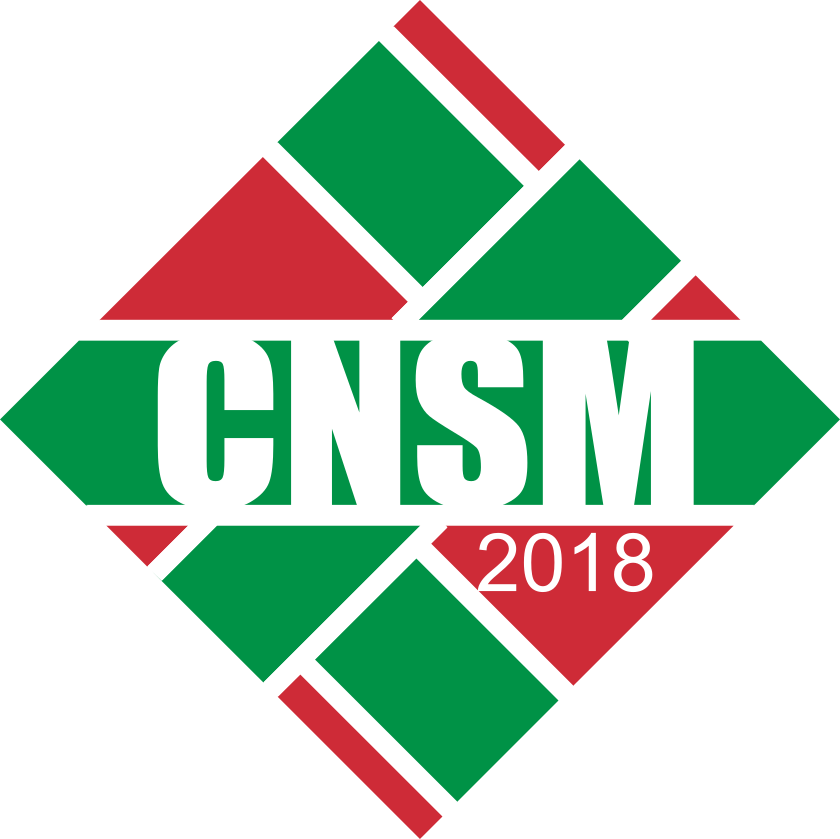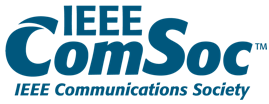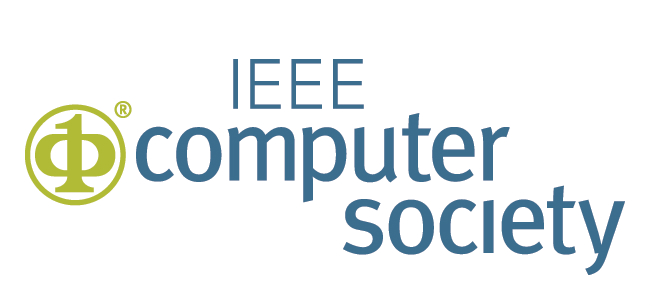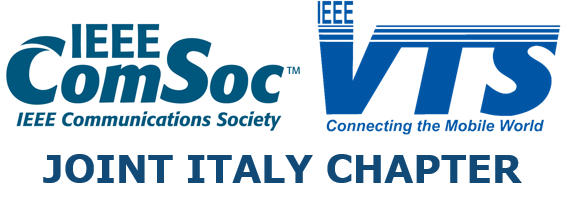CNSM 2018 Tutorials
 Tutorial 1
Tutorial 1
Title: Network Slicing: A holistic architectural approach, orchestration and management with applicability in mobile / fixed networks and clouds
Speaker: Prof. Alex Galis
Date: November 5th, 2018, 9:00 - 12:30 AM
Abstract: This half-day tutorial will present the concepts, design and technologies enabling Network Slicing (NS). NS is both an old and new idea. While its scope and definition continue to evolve, there is reasonable level common understanding of the key central role it will play in future network and service delivery scenarios. The significant value of network slicing architecture will be seen in terms of dynamic and non-disruptive control, operation and scaling of services in a network slice by the tenant of the slice. In order to achieve this, a fundamental change in how we administer networks is required in terms of abstraction, separation and mapping of forwarding, control and management aspects of a service. There exists a possibility of applying already mature methodologies such as SDN, NFV, service chains, network virtualization, etc. The challenge lies enabling an operator to flexibly use such tools in a light-weight manner with in a viable architectural framework. The first part of this tutorial presents the main slicing concepts and their history, key slicing characteristics and usage scenarios, Standard Organization activities in network slicing (ITU-T, IETF, ETSI, other SDOs), Slice Life Cycle Management, Management & Orchestration frameworks, Research & Development projects on Slicing. This part will conclude with identifying research and development challenges in Network Slicing. The second part presents industry use cases as a perspective on an overall architecture of network slicing and corresponding operations to demonstrate how an end-to-end slice couple be deployed and managed. It shows many existing standard techniques can be used to simplify network slice workflows. This part will wrap up with a report on progress and approach currently used for standardization of requirements of network slices.
Tutorial Outline:
- Key Slicing concepts and history
- Slicing Usage scenarios
- Standard Organization activities
- SDN, Virtual Networks and Network Function Virtualisation
- Slicing Life Cycle Management and Management & Orchestration frameworks
- End-to-End multidomain network slices
- Review of Research projects and results in network and cloud slicing
- Network Slicing Challenges
- Review of industry Use Cases
- Concluding remarks of Network slicing
- Acknowledgements & References
Bio: Alex Galis is a Professor in Networked and Service Systems at University College London (UCL). His current interests are on 5G networking, software defined infrastructure and services, network and cloud programmability and management. He has co-authored more than 280 publications in the future Internet areas: networks and services, management, networking clouds, virtualization and programmability including 10 research books. He has contributed to ITU-T standards on Future Networks and 5G Networks and he has worked on IETF drafts in Autonomic networking and network slicing. He has been a co-principal investigator at UCL on a number of EU research projects with a total UCL budget of more than 10 M£, including overall technical leadership of the MISA - Management of IP networks, FAIN - programmable networks, CONTEXT - context aware networking, AUTONOMIC INTERNET - autonomic network and NECOS - Novel Enablers for Cloud Slicing projects. He was a member of the Steering Group of the Future Internet Assembly (FIA) and he led the Management and Service–aware Networking Architecture (MANA) working group at FIA. He acted as PTC/ keynotes/ panels/ workshops co-chair of 14 IEEE conferences and reviewer in more than 100 IEEE conferences and journals. He is a co-editor of IEEE JSAC series on Network Softwarization and Enablers, ETRI Journal published by Wiley and of the IEEE Communications Magazine feature topic on Advances in Networking Software. He is an International Academy, Research, and Industry Association (IARIA) Fellow (2011, https://www.iaria.org/fellows.html). He was selected as a Vice Chair of the ITU-T SG13 Group on Future Networking. He is involved in IEEE SDN initiative including co-chairing of the IEEE SDN publication committee.
Tutorial 2
Title: Network Function Virtualization (NFV) Enabling Technology for 5G
Speaker: Faqir Zarrar Yousaf
Date: November 5th, 2018, 13:30 - 17:00 PM
Abstract: Communication networks’ architecture and technologies are undergoing through their next evolutionary phase towards 5G. This evolutional phase is markedly different from the previous phases in that the complete concept of networking is undergoing a paradigm shift. Networks are now moving beyond as mere bit-pipes towards a highly agile and programmable entity that can be tailored to the varying demands of the various industry verticals while ensuring conformance to stringent performance requirements and expectations of 5G. New technologies and architectures are being developed that will provide the customers their own isolated network “slices” over the same infrastructure thus creating new use cases and business models. NFV is now recognized as one of the key enabling technologies for the management of 5G networks, and the NFV Management and Orchestration (MANO) framework and its various aspects is being specified keeping in view of management and orchestration of virtualized network functions and services. The goal of this tutorial is:
1. To highlight the challenges and requirements for the management of 5G networks;
2. To impart in-depth knowledge about the ETSI NFV MANO system framework;
3. To explore the features/capabilities/functions/services of NFV MANO system in view of the 5G networks requirements/challenges.
This tutorial will also discuss the various integration options of the NFV MANO with the SDN networks and how the two technologies complement each other in imparting a truly programmable and agile network platform. At the end of the proposed 180 minute tutorial, the audience is expected to have an effective knowledge of NFV MANO system and its key role in the context of 5G.
Bio: Dr. Faqir Zarrar Yousaf is a Senior Researcher at NEC Laboratories Europe in Heidelberg, Germany. His current research interest is focused around NFV/SDN related technologies in the context of 5G network architecture and operations. He is also an active delegate at the ETSI NFV standards organization. He was awarded NEC’s standardization “Fresh Player” award in 2015 for outstanding work in ETSI NFV. He has contributed to around 7 published ETSI NFV standard documents with over 130 contributions; while being a Rapporteur for four work items. Dr. Yousaf has extensive experience in the design development, modeling, simulation and prototyping of novel protocols, algorithms and system methods for optimizing network performance. He has filed 13 patents while his research work has been published in several peer reviewed international journals, conferences, book chapters and Internet Drafts. He is member of the Institute of Electrical and Electronics Engineers (IEEE) and has served as Guest Editor, Co-chair, TPC member and reviewer for various conferences and journals.
Tutorial 3
Title: Blockchain and Smart Contracts – From Theory to Practice
Speaker: Bruno Rodrigues, Roman Blum, Thomas Bocek, Burkhard Stiller
Date: November 9th, 2018, 9:00 - 17:00
Abstract: Blockchains and Smart Contracts are more recent technologies and they help building the foundation of a truly distributed digital society. This tutorial provides at first a basic theoretical introduction into blockchains and Smart Contracts and secondly a practical interaction with a blockchain and initial aspects for the development of Smart Contracts. Hence, the audience is guided through the deployment of an Ethereum Blockchain and the creation of an ERC20 token (Ethereum Request for Comment Number 20) using Smart Contracts. In this regard, besides the practical support of the instructors, the audience will receive a key basis and an introduction to major concepts and issues with respect to blockchains and Smart Contracts. At the end of the tutorial, the audience is expected to be not only able to create blockchains and Smart Contracts, but also to interact on a detailed technical level with these components.
Bio: Bruno Rodrigues received the B.Sc. degree in Computer Science from the University of the State of Santa Catarina (UDESC), Brazil in 2013 and his M.Sc. degree in Computer Engineering from the Polytechnic School of University of São Paulo, Brazil in 2016. He joined the Communication Systems Group CSG at the University of Zürich UZH, Switzerland in September 2016 to obtain his Ph.D. degree. His interests include blockchains, measurements and monitoring, SDN, network and service management.
Roman Blum is a blockchain researcher and teaching assistant for distributed systems at the University of Applied Sciences Rapperswil HSR, Switzerland. He received the B.Sc. degree in Computer Science in 2017 and is currently completing the M.Sc. degree in Engineering degree with specialization in Software and Systems at HSR.
Prof. Dr. Thomas Bocek is a professor for distributed systems and ledgers at the Hochschule für Technik Rapperswil HSR, Switzerland. He is a blockchain researcher and CTO of ScienceMatters. He is also involved in modum.io AG, a blockchain start-up that combines IoT sensor devices with blockchains. Additionally he works for (a) VETRI, a blockchain-based solution for user-controlled digital identities, (b) Dezos, a decentralized ownership, and (c) Topl, an open capital infrastructure for developing markets. Finally, he is a mentor at Iconiq Lab and is involved in the open source projects ICOnator, an ICO engine, and the research on blockchain Bazo. Prof. Dr.
Burkhard Stiller received the Informatik-Diplom (M.Sc.) degree in Computer Science and the Dr. rer.-nat. (Ph.D.) degree from the University of Karlsruhe, Germany in 1990 and 1994, respectively. He chairs the Communication Systems Group CSG at the Department of Informatics IfI, University of Zürich UZH, Switzerland, since 2004. Besides being a member of the editorial board of the IEEE Transactions on Network and Service Management, Springer’s Journal of Network and Systems Management, and the KICS’ Journal of Communications and Networks, Burkhard is Editor-in-Chief of Elsevier’s Computer Networks journal. His main research interests are published in well over 250 research papers and include systems with a fully decentralized control (blockchains, clouds, peer-to-peer), network and service management (economic management), Internet-of-Things (security of constrained devices, LoRa), and telecommunication economics (charging and accounting).














